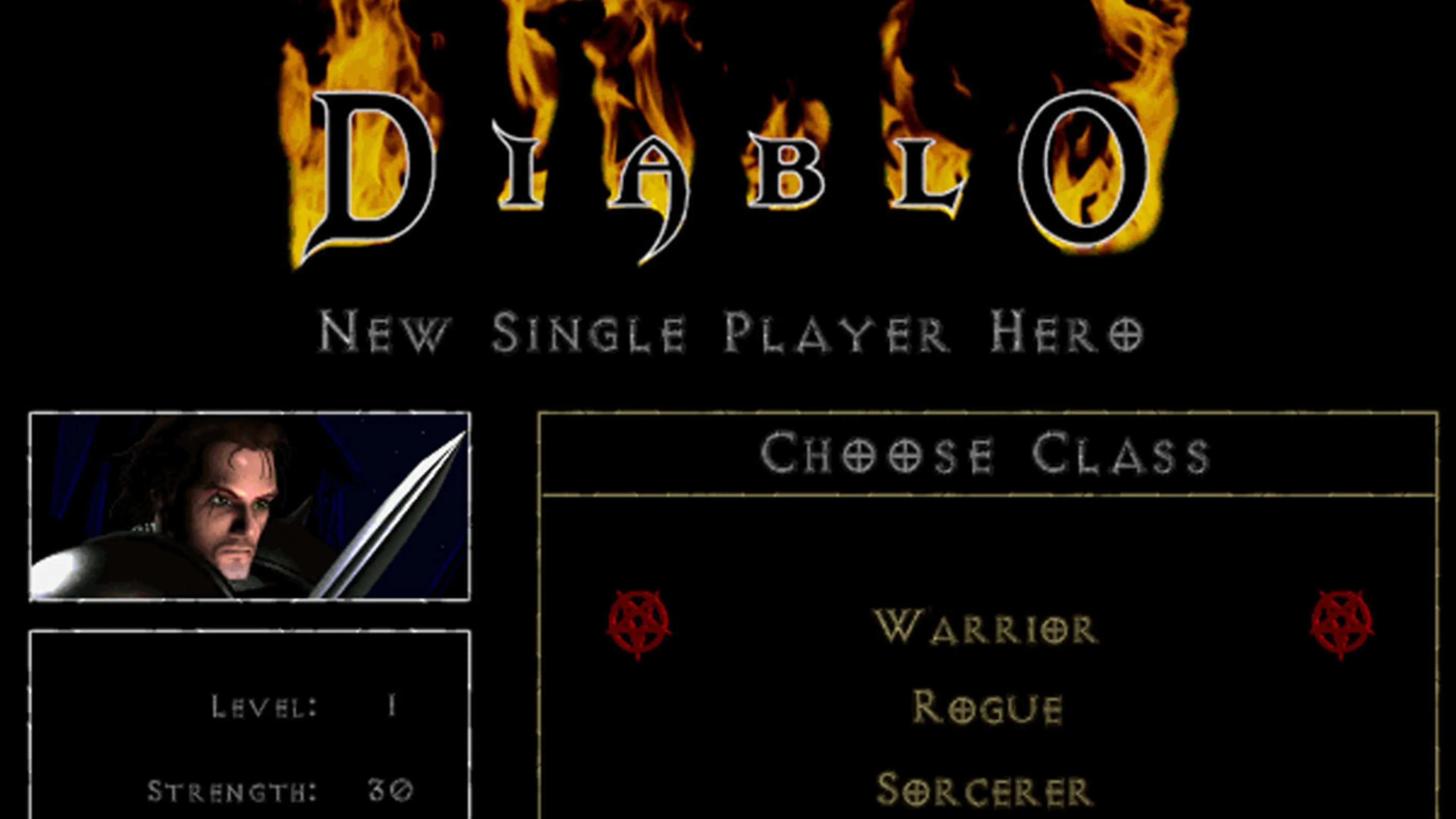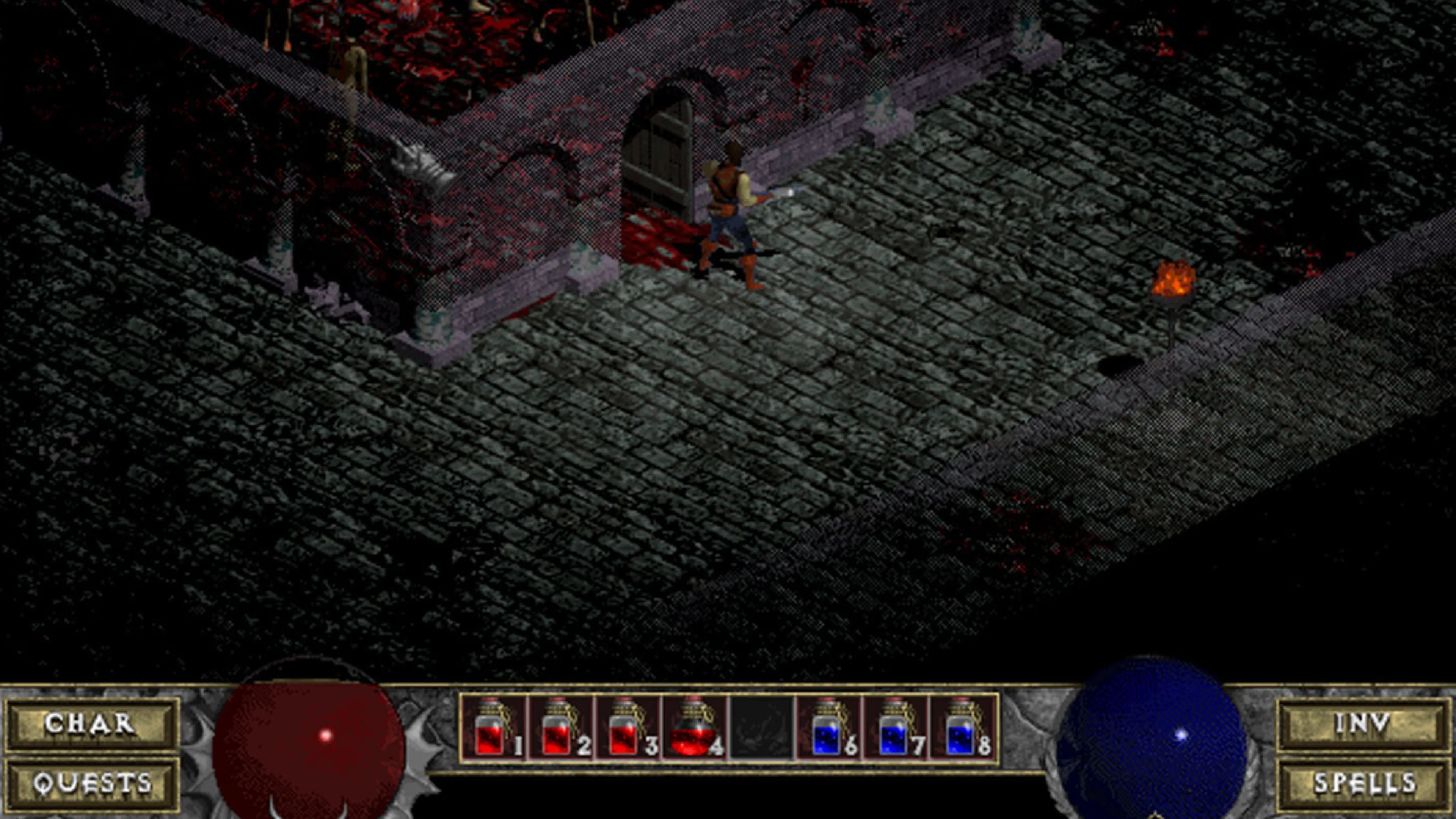Summary
PC has always been the biggest platform for gaming due to how common computers have become in the average household. Even with consoles growing to become much more common today, PCs still remain at the top of the pile. Typically, having a larger player base and higher sales numbers across the board for most games.
While there’s no shortage of new, great games to choose from on any platform, nothing beats a good old, classic PC game. The 1990s and 2000s were chock-full of PC games that were revolutionary in their respective genres, and the industry as a whole, with many of them still holding up to this day. So perhaps it’s time to revisit some of these legendary PC gaming classics, whether it be for old memories or maybe even to jump in and experience them for the first time.

The most recentDeus Exrelease wasMankind Dividedback in 2016, andthe series has been mostly silentever since. Despite that, most of its entries have been widely regarded over the years, starting with the originalDeus Exback in 2000. A unique RPG-shooter hybrid, set in a gritty cyberpunk future of conspiracies, surveillance, and bioaugmentation. The plot centers around an agent named JC Denton, navigating a world where every decision the player makes shapes the story.
What madeDeus Exgroundbreaking for its time was the way it gave players a blank slate in terms of how they tackled each task. Missions could be approached through stealth, hacking, or brute force, allowing for many different gameplay styles and offering a level of freedom to players that still holds up well today. Coupled with some of its more in-depth dialogue choices, which often creates a sort of “moral ambiguity” in many situations.

While its graphics and some of its mechanics may show their age at times, the game’s design and overall atmosphere were its biggest selling points that still stand strong to this day, making the originalDeus Exa must-play PC classic.
TheDiabloseries from Blizzard Entertainment is still going strong today with the more recent releases ofDiablo 4andDiablo Immortal. Almost three decades ago, the originalDiabloarguably set the gold standard for action RPG games at the time.

It stood out by having a much darker atmosphere, which was a far cry from the somewhat common high-fantasy setting of most RPGs at the time. It created the foundation for additive ARPG gameplay with its now-traditional loop of dungeon crawling and looting, creating an endlessly replayable journey that still holds its own to this day. Dropping players into the cursed town of Tristram, the game sends you deeper and deeper into a hellish underworld filled with all sorts of demons, traps, and other threats. Even today, the simple yet effective mechanics ofDiablomake it easy to get lost in “just one more run”. While later entries in the series expanded the formula, the original still holds a unique charm that only a classic PC game can have.
Perhaps the most well-known series of D&D-based CRPG titles,Baldur’s Gatehas been a prolific name in gaming now for over 20 years, especially with its most recentthird installment from Larian Studios. While the original title was groundbreaking in 1998, its sequel,Baldur’s Gate 2, is regarded as a major improvement and one of the strongest installments in the series.

TheBaldur’s Gateseries has always shared the same level of detail as the tabletop RPG it is based on, focusing on giving a balance of good gameplay and narrative complexity, andBaldur’s Gate 2was no exception here. Built on Advanced Dungeons & Dragons 2e rules, players are dropped into the familiar forgotten realms fantasy world, full of ancient magic, unbelievable creatures, and a plethora of often difficult moral choices. Its slightly dated isometric graphics can easily be looked past thanks to its great art direction. On top of its deep characters, fluid, tactical combat, and sheer scale,Baldur’s Gate 2remains one of the gold standard CRPG titles and is a must-play classic for any fan of the genre.
With all this talk of RPGs, it’d be nearly impossible not to mentionBethesda’s world-renowned series,The Elder Scrolls; more specifically, its third installment,The Elder Scrolls 3: Morrowind, from 2002.

This time, the series took players to the land of Vvardenfell, home of the Dark Elves known as the Dunmer. The new locale broke away from the traditional medieval fantasy that was common in the RPG genre, featuring its distinctive mushroom forests, ash storms, and insectoid-like architecture. What allowsMorrowindto hold up so well is its unique atmosphere and sense of freedom. Providing a balance between the hand-holding of some modern RPGS and the somewhat cryptic complexity of older CRPGs. Putting the focus on exploration, instead of pointing players to a location with a marker, it encouraged them to listen to dialogue and clues for objectives and locations.
While some of its combat mechanics can be a bit to get used to in the present day, what givesMorrowinda slight edge over its previous two entries is how it balanced the old and new concepts of the RPG genre. Offering improvements for easier gameplay, while also giving just enough complexity to remain both fair and fun, even for a playthrough in the current day.

Back to the FPS side of things, and we can’t forget about id Software’sever-popularQuakeseries. With its gritty Lovecraftian aesthetic, thumping soundtrack, and, of course, its crazy weaponry,Quakewasn’t just a huge technical leap for gaming—it was a full-blown shift for the entire shooter genre.
It took the brutal chaos ofDOOMand launched it into full 3D, creating a fast-paced, run-and-gun shooter that still feels great today. Tight movement and skill-based gun play, with easy-to-learn mechanics, created a formula that really hasn’t aged much, even almost 30 years later. Not to mention the addition of multiplayer, where deathmatches were tense and competitive, arguably laying the groundwork for online shooters as we know them. Overall, the simple and fluid mechanics of the originalQuakeallow it to hold up incredibly well in the modern day, still being widely considered as one of the greatest shooters of all time. It’s raw, it’s relentless, and it still rips.

TheThiefseries has been all but silent after some mixed reception withits reboot in 2014, but the same can’t be said about its other entries, especially the originalThief: The Dark Project.
It redefined the first-person, action-adventure genre by adding its heavy focus on stealth, where the player’s greatest strength was the shadows instead of a weapon. Players take on the role of a master thief named Garrett as they slink through the candlelit halls of gothic strongholds, avoiding guards, traps, and supernatural horrors. What setThief: The Dark Projectapart at the time was how it treated sound and light as core mechanics. Rather than just hiding, players are encouraged to listen to footsteps and take note of watch patrol patterns in order to approach each situation quietly. Even today, well-crafted levels, dark atmosphere, and methodical gameplay still hold up and give a sort of “nail-biting” tension.

The game rewarded patience and thought, rather than speed and damage, making it a classic stealth experience that really hasn’t lost its edge even over 25 years later.
For those not keen on the combat-driven classics in the FPS and RPG genre, a city-builder/management game may be a better fit, and there was no better option back in the day thanSimCity. One of the most recognizable series in the genre throughout the 1990s and 2000s, and its fourth main title in particular, is still seen as one of the greats.

WhenSimCity 4came around in 2003, it showed how far the series had come over the years, while still staying true to its original formula. While it can be a casual experience, it can also require careful, long-term planning. You’re not just placing buildings, you’re managing traffic and transport, balancing budgets, and shaping a regional economy across multiple connected cities. Its simulation mechanics are a perfect balance of depth and straightforwardness, and still hold up the same today as they did over two decades ago.
SimCity 4is a PC classic that is aimed at both casual and more experienced players of the genre. Due to thelack of newer releases in the series, this one is a must-play for fans of good old city-building gameplay.

It would be nearly impossible to make a list like this without mentioning the 1998 classic,Half-Life. The legendary first-person-shooter that took Valve from a small-time company intomainstream success and popularity, even years before Steam came around. Often considered as one of the FPS genre’s most defining titles, still over 25 years later.
Following Gordon Freeman’s average day turned worst nightmare at the Black Mesa Research Facility, when a rift opens between Earth and the alien world of Xen during a routine test gone wrong. The game’s use of environmental storytelling at the time was one of its standout points, where the story unfolded through small, atmospheric details rather than long explanations or cutscenes.Half-Life’sengine was also built off the same one used inQuake, so it naturally shared the same fun, fast, and fluid gameplay that felt just as good today as it did in 1998. Unsurprisingly, its debut success was massive, winning over 50 “Game of the Year” awards for PC and solidifying Valve’s reputation for years to come.
Even to this very day,Half-Lifehas managed to hold its high position in the “best games of all time” lists of many publications, a true testament to its legacy as one of the greatest FPS titles of all time.